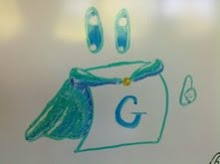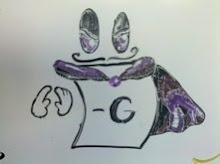Teaching this combinatorial games class has been tough. I am simultaneously teaching Software Engineering and Algorithms, and while both are challenging courses for students, they are going pretty smoothly. I know what I can expect from those students and know what I need to get across to them.
Combinatorial Games, on the other hand, is an adventure into some tricky territory. Since I have a wide variety of math and computer science students, I'm having a hard time making the correct assumptions about what my students already know. Since this is a new-fangled elective, I also don't have specific goals I need to communicate.
The structure of the course has been to spend one of the two class periods each week focusing on playing a new game. (Here is the class schedule so far.) The first week we played Domineering, then Clobber, then Toppling Dominoes. Students would play a bit amongst themselves, and do a great job answering questions I posed. But, after a few games and a few opponent-switches, they would get a bit bored. The 1.5 hour class started to drag on and a few students would actually ask me to return to lecturing. (Luckily, I brought some notes with me!)
Then, in the fourth week, we played Amazons. Wow. The students responded to this by actively getting into the game and trying to figure out good moves. The idea of outcome classes started to click and when I called for a change of opponents, very few people got up in the first minute.
Last week, we did something even better. I had the students play game sums (Note to me: I should have done this sooner!) and try to find different games that summed to zero. The base game was Amazons, and I drew different instances on the whiteboard and challenged the students to find different Domineering, Clobber and Toppling Dominoes games that, when added to the Amazons board, summed to zero. The result was possibly the best class period I have ever taught... even though I personally did very little. Students quickly took to their game boards, reasoned about some sums, then started filling up the marker board. Almost immediately some things written on the board were challenged (though no one was brash enough to erase another student's work without permission) and some excellent discussion began to take place.
Wow.
It's hard to describe that level of engagement by students. Everyone was knee-deep in advanced mathematical material, experiencing it first-hand. We haven't yet defined many possible game values (I'm not sure we've defined anything rigorously yet) but students were quickly clamoring for an explanation of different fuzzy games and non-number values.
As I continue this semester, I think I need to make sure that every topic is motivated, and perhaps play games in each class (instead of every other). These last two game days have made an amazing argument for that!
Jokes from the Audience
5 days ago



No comments:
Post a Comment